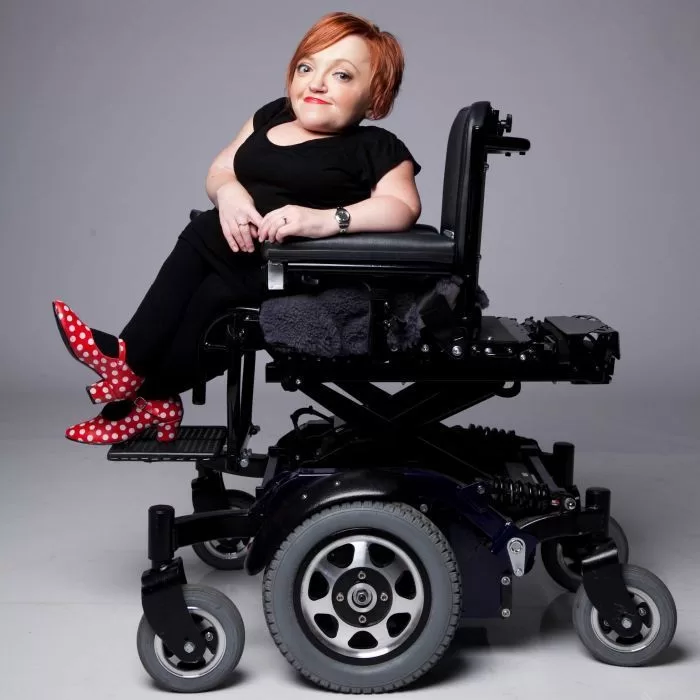Updated on August 20, 2024

What is Rheumatoid Arthritis?
Rheumatoid arthritis (RA) is a chronic autoimmune disease that causes joint inflammation, leading to pain, stiffness, and swelling.
Over time, RA can damage cartilage and bone, resulting in joint deformity and loss of function. It’s a condition that can significantly impact a person’s quality of life.
Unlike osteoarthritis, which is primarily a wear-and-tear condition, Rheumatoid arthritis (RA) is a systemic condition, meaning it can impact other organs and systems in the body, such as the heart, lungs, and eyes.
But does it qualify as a disability in Australia?
Symptoms of Rheumatoid Arthritis
The symptoms of RA can vary significantly from person to person and may fluctuate in severity. Common symptoms include:
- Persistent joint pain and tenderness
- Stiffness in the joints, particularly upon waking up in the morning or following prolonged periods of not moving.
- Swelling and redness around the affected joints
- Fatigue and a general feeling of malaise
- Fever and weight loss in more severe cases
RA often initially targets smaller joints, like those found in the hands and feet, but eventually affects larger joints, including the knees, hips, and shoulders. Over time, persistent inflammation can lead to joint damage, loss of function, and physical deformity.
Is Rheumatoid Arthritis Considered a Disability?
In Australia, the definition of disability is guided by several pieces of legislation, most notably the Disability Discrimination Act 1992 (DDA). The DDA broadly defines disability, encompassing any condition that affects a person’s physical, intellectual, or sensory functions and restricts their ability to perform daily activities.
Under the DDA, a disability is considered to be long-term and substantial. Rheumatoid arthritis is a chronic condition that meets the long-term criteria. Whether it’s substantial enough to be considered a disability depends on its impact on a person’s life.
RA can significantly affect a person’s ability to perform daily activities, including work, self-care, and social participation. Pain, fatigue, and joint stiffness can make concentrating, performing tasks, and maintaining relationships difficult. For some, the condition may lead to unemployment or reduced work hours.
The concept of “invisible disability” is often associated with RA. Unlike readily apparent physical disabilities, RA is a condition that can be hidden from view. This can lead to challenges in obtaining accommodations and support.
The National Disability Insurance Scheme (NDIS) supports people with significant and permanent disability. While RA may qualify some people for NDIS support, the eligibility criteria are strict, and access to funding can be challenging.
Rheumatoid Arthritis Under the Legal Definition of Disability
Under the DDA, a condition like RA can indeed be classified as a disability, particularly if it significantly impacts a person’s ability to engage in work or daily life activities. However, the classification of RA as a disability is not automatic. It depends on the severity of the condition and the extent to which it limits the person’s functioning.
For instance, someone with mild RA who manages their symptoms effectively with medication and lifestyle adjustments might not be considered to have a disability under Australian law. In contrast, a person with severe RA, where joint damage and pain severely restrict movement and daily function, would likely meet the criteria for a disability.
Accessing Disability Support and Services in Australia
For those with RA who struggle with daily life or work, several support systems are available in Australia. The most prominent is the National Disability Insurance Scheme (NDIS), which provides support to Australians with permanent and significant disabilities.
National Disability Insurance Scheme (NDIS)
The NDIS aims to assist people with disabilities in reaching their objectives and enhancing their living standards by offering financial support for services and aid. This support may cover help with everyday tasks, devices to aid mobility, and home modifications.
The Process of Getting RA Recognized as a Disability
Medical Documentation
- Diagnosis: Secure a confirmed diagnosis of RA from a qualified medical professional.
- Treatment History: Provide detailed records of treatments, outcomes, and current management strategies.
- Impact Assessment: Show how RA affects daily activities and the ability to work.
Application Process
- Initial Assessment: Submit medical documentation to authorities like the NDIS or Centrelink for review.
- Review Process: The application is evaluated, and additional information may be requested.
- Outcome: If approved, the person receives support tailored to their needs.
Challenges and Considerations
- Symptom Variability: RA symptoms can vary, making it hard to prove consistent disability.
- Complex Paperwork: The process can be intricate and time-consuming.
- Reassessments: Periodic reviews may be required to maintain eligibility for support.
Conclusion
Rheumatoid arthritis can significantly impact a person’s life and, in many cases, can be considered a disability under Australian law. The extent to which RA qualifies as a disability varies depending on individual circumstances.
It’s important to know that RA is a complex condition with many impacts. People with RA deserve support, understanding, and access to the resources they need to live fulfilling lives.
For more information and support, consider contacting Arthritis Australia, the Arthritis Foundation of Australia, or other similar organisations.
Looking for reliable and trustworthy care services?
At Centre Disability Support, we offer tailored support services for individuals with disabilities throughout Australia. We offer housing options in Logan, Ipswich and Brisbane areas, where we provide independent supported living or assist individuals in finding suitable options for individualised living.
Additionally, we provide day-to-day support for individuals with mental health issues, complex behaviour and other types of disabilities. We also have support coordinators available to assist with planning and navigating NDIS plans and offer casework support.
Whether you’re seeking support for yourself, a loved one, or simply wish to learn more about our services, we’re here to help.
MORE FROM CENTRE DISABILITY SUPPORT
IS OSTEOARTHRITIS A DISABILITY IN AUSTRALIA?
Is Dementia A Disability In Australia?
Is Endometriosis a Disability in Australia?
Is Bipolar Disorder a Disability?
IS FIBROMYALGIA A DISABILITY IN AUSTRALIA?



